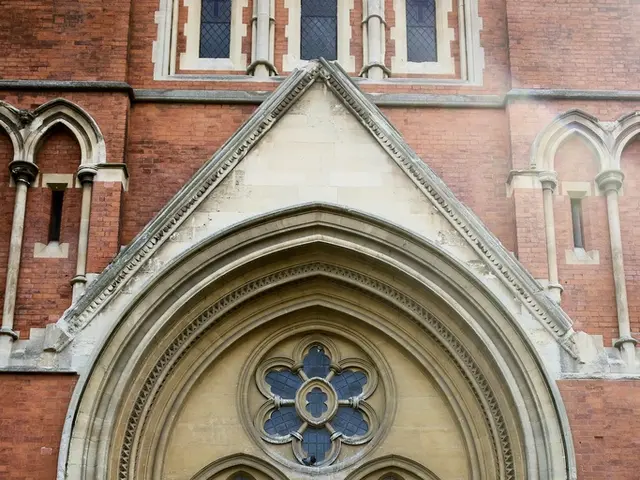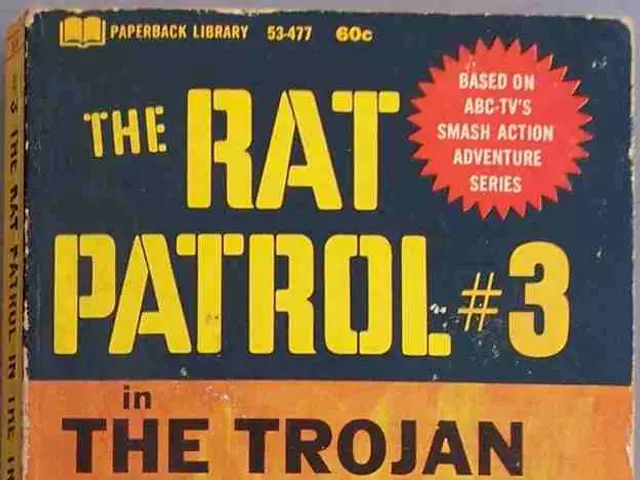Trump's Assault on Democracy: Undermining Power, Justice, and Education
Trump's Strategies Undermining Democratic Institutions
In the slice of democracy pie under President Donald Trump, America faces a significant slide towards an authoritarian regime. During his second term, Trump has swiftly weakened the nation's institutions, breached fundamental rights, and interfered with education and research - causing dismay among scientists and the public.
A survey measuring the political system's health in the U.S. reveals a concerning trend. Trump's tenure has dragged the value of the scale, which ranges from 0 for total dictatorship to 100 for pure democracy, from 67 to 49 among scientists. Even after Trump's controversial first term and the January 6, 2021, coup attempt, the value didn't dip below 60 - demonstrating a gradual descent towards autocracy. But just how far will this fall, and will it be permanent?
In terms of the separation of powers, Trump has pushed boundaries few presidents have dared to cross since World War II. His administration has blatantly ignored court orders and reduced cooperation with the judiciary to the absolute minimum. Trump has publicly ridiculed judges, and some cabinet members argue that they have no right to review or restrict presidential actions – duties the judiciary is expressly tasked to carry out.
Trump treats the U.S. Congress like a subordinate, unwilling to accept democratic process. He blocked the sale of TikTok, supported by both parties, and withdrew funding from unwanted agencies. The Constitution dictates that these decisions should be left to Congress. Trump, however, sees it differently.
The Judiciary's Conundrum
The principle of fair trial enshrined in the U.S. Constitution protects every person within the country's borders, regardless of citizenship. Trump's administration has repeatedly violated this right over the weekend by publicly questioning the applicability of the constitution to migrants. If not bound by the constitution, they would be second-class citizens in the legal system.
The most glaring instance: The U.S. Immigration and Customs Enforcement (ICE) deported 238 people of Mexican origin to a maximum-security prison in El Salvador without trial. One deportee, Kilmar Ábrego García, has captured public attention since.
Trump's administration seems immune to the pleas of justice. Should non-citizens be denied a fair trial, U.S. citizens with passports could face the same fate, according to lawyer Denise Gilman of the University of Texas. The White House has hinted at such a possibility, threatening to deport criminal U.S. citizens in what could be the largest deportation action in history.
Equal Justice for All?
The pursuit of "equal justice for all" appears to be merely lip service under Trump. Since the Watergate scandal, the White House had generally allowed the Department of Justice (DoJ) and the Attorney General to function independently. Trump has shattered that precedent by using the department to serve his personal interests, such as pursuing political adversaries. This crusade is cloaked in claims of pursuing the nation's best interest. One example: In April, Trump ordered an investigation into ActBlue, the fundraising network for the Democratic Party and oppositional groups.
To spearhead his agenda, Trump has halted or taken steps to prolong investigations against allies while sparing enemies. In his early days, he targeted law firms working with Democrats using executive orders, attempting to silence legal challenges to his policies. On his first day in office, he issued pardons for participants in the storming of the Capitol, effectively communicating that loyalty to Trump supersedes the law.
Free Speech for Few
Claims of reinforcing freedom of speech ring hollow under Trump's watch. President Trump and his team have, in reality, restricted the rights to free speech. Trump has sued multiple U.S. media outlets for unfavorable reporting, intimidating journalists and editors. The White House press secretary now leads press conferences attended by pro-Trump influencers, described as "a briefing straight out of North Korea".
Book bans have long been a contentious issue in the conservative culture war against progressive politics. The federal government may have limited involvement in book selections, but the military's action to remove books on racism, women in the Holocaust, and other controversial subjects reflects how Trump's agenda impacts the broader culture. Removing two copies of "Mein Kampf" remains a curious choice.
Culture and Knowledge in the Crosshairs
The government, particularly targeting migrants who publicly criticized Israel, has made universities a focal point for criticism and censorship. Some have had their visas revoked; others have been arrested in the streets. The Republican Party views schools, including academia, as a breeding ground for progressive politics and deems it necessary to exert control. Trump has threatened to withhold funds from universities that don't comply with government demands to end affirmative action and other divisive practices.
Ivy League university Columbia was forced to cut 180 jobs due to reduced funding, while Harvard resists, facing frozen funds and the loss of its tax exemptions. Jason Stanley, a democracy scholar at Yale University and author of "How Fascism Works," plans to move to Canada, finding it difficult to maintain his academic career even as he questions the future of American democracy: "I find it very difficult to see a democratic future in this country."
Source: ntv.de
- Donald Trump
- USA
Enrichment Data:
The Trump administration's impact on American democracy extends beyond the examples provided in the article. Here are some additional enrichment points to illustrate the depth and breadth of change during Trump's presidency.
Executive Orders:
- Executive Order 13789 (Border Security): This order restricted travel from seven countries and suspended refugee admissions, sparking protests and legal challenges. The order was subsequently revised and upheld, though it reflected a broader policy focus on immigration control.
- Executive Order 14036 (Daylight Saving Time): Trump attempted to extend daylight saving time year-round, sparking controversy and division among state officials and energy experts. A federal law ultimately prevailed, preventing the order from being implemented.
Federal Appointments:
- Jeff Sessions: Trump appointed Jeff Sessions as Attorney General. Sessions held the position for two years, during which he pursued numerous controversial policies, such as reversing Obama-era guidelines on civil rights enforcement and criminal justice.
- Brett Kavanaugh: The controversial appointment of Brett Kavanaugh to the Supreme Court solidified the conservative majority on the nation's highest court, potentially shaping the direction of U.S. law for decades to come.
Education Policies:
- Betsy DeVos: DeVos, the former Education Secretary, prioritized school choice and voucher programs, criticizing traditional public schools and championing charter schools and private education options. DeVos' tenure was also marked by controversy surrounding her handling of student loan forgiveness requests and numerous policy changes.
- Title IX Changes: The Trump administration implemented changes to Title IX guidelines, narrowing the definition of sexual harassment, reducing protections for survivors of sexual assault, and prompting widespread backlash from educational institutions, advocacy groups, and Democrats.
These examples demonstrate the administration's broader efforts to reshape American politics, challenge democratic norms, and enact targeted policies on a range of issues. It is worth noting that presidential administrations influence the nation in various ways, and some changes may be short-lived. However, the Trump presidency has left a lasting impact on American governance, civic life, and identity.
- The European Union, as a global democratic entity, has expressed concern over the erosion of democracy in the United States under President Donald Trump.
- Trump's policy and legislation, particularly on education and self-development, have faced criticism for weakening the nation's institutions and hindering personal growth and general news.
- War and conflicts, crime and justice, and politics have seen significant shifts under Trump's administration, with questions being raised about the preservation of separation of powers, the principle of fair trial, and equal justice for all.
- The Trump administration's impact on American democracy extends beyond executive orders, federal appointments, and education policies; it has led to a debate about freedom of speech, with concerns raised over the silencing of critical voices and the censorship of controversial topics in education and culture.









